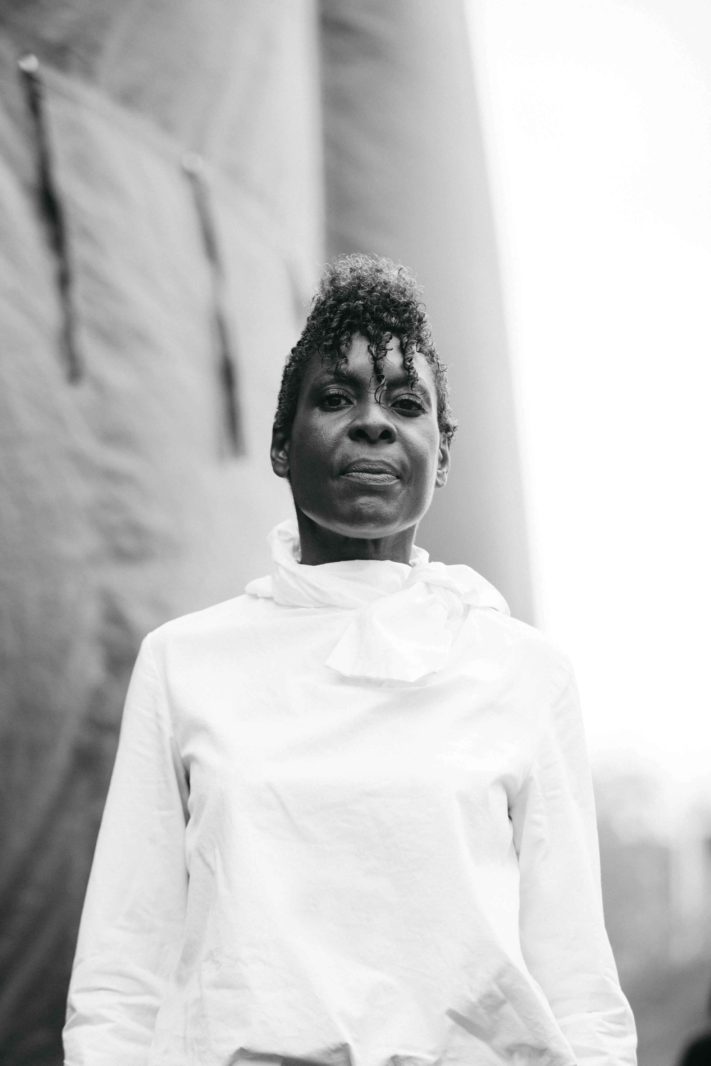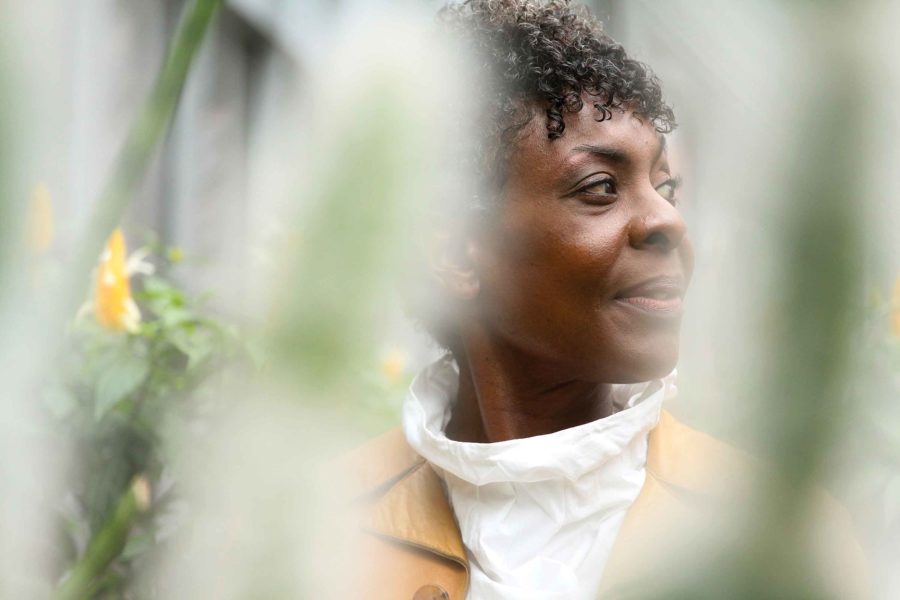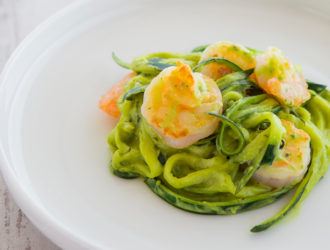Not all museum curators are artists, but some are. In the case of the Isabella Stewart Gardner Museum’s current Visiting Curator for Performing Arts Helga Davis, that’s a very good thing.
Davis brings all of her energetic life force to her interdisciplinary work. Supremely confident and inquisitive, she offers a multi-faceted response to the Gardner collection, where she has been in place since July 2018. While the Gardner position has no rules, Davis reflects that there are considerations. For her part, she is determined to engage the public and wants to offer people, both regulars and those new to the museum, an invitation to come in, reflect and be welcomed.
George Steel, the Gardner’s distinguished Abrams Curator of Music and a visionary producer who brings a deep technical, historical and artistic background to performing arts programming, invited Davis to spend a year exploring and responding to the Gardner collection.
“I was delighted to receive an invitation to come to the Gardner from George Steel,” says Davis. “He’s known as a risk taker—a big risk taker—something I believe is necessary in the creation of art. He and I are a good match, and we use our energy and curiosity to move our audiences and institutions forward, toward the experiences that are important to the communities we serve.”
Davis is a creative performing artist working in theater and music, but isn’t interested in categories, labels or limitations. She is a citizen artist, believing, regardless of any different manifestations, the work she makes is “all one conversation with life.”
Over the course of her busy career, she played a lead role in the world tour of the 2012 revival of Robert Wilson’s four-act, five-hour opera “Einstein on the Beach.” She starred in a show with music by Cecil Taylor at the Whitney Museum of American Art. And, she hosts a podcast on New York City’s WQXR, the most listened-to classical music station in the United States.

EMMANUEL AFOLUBI
Helga Davis, Isabella Stewart Gardner Museum’s Current Visiting Curator for Performing Arts
“I grew up in Harlem and studied piano on Saturdays with Arnetta Jones. Miss Jones was an African-American woman born in 1905, who attended Curtis and Juilliard. She came back to Harlem to teach, as she called us, the Negro children. I was around 10 when she took me to Carnegie Hall to hear André Watts play Beethoven. It wasn’t until then that I realized white people played classical music.”
Today, Davis’ taste in music is eclectic, running from Beethoven to Julius Eastman to Marvin Gaye. She feels fortunate to have grown up with a person who said, “All music is your music.”
Her residency at the Gardner parallels her artistic explorations as a sophisticated jazz vocalist, actress, performance art creator and contemporary urban theorist. Responding to the museum’s goal of providing a thought-provoking environment and artistic opportunities for artists, Davis has designed events that illustrate her expansive and diverse artistic imagination.
Within her own work, audiences will notice a political element, based on her desire to inspire, encourage action and effect change. And, this year, audiences at the Gardner observe her profound commitment to the events she programs. She attends them all, and is not merely a “curator on the run.” She’s especially interested in conversation, communication and connection.
Programming includes an evening with Robert Wilson, often referred to as the world’s foremost theater artist. Davis has also organized a table-read of the play, “All American Boys,” followed by a talk-back that takes head-on the implications of the arrest of a young African-American teen and the white teen who witnesses the arrest.
Responding to the Gardner’s historic exhibit “Botticelli: Heroines & Heroes,” Davis commissioned a monologue by Hilton Als that she performs in front of Botticelli’s “The Story of Lucretia.” Davis was intrigued by the only black character in the painting, and she asked Als to think about “what would he say if he could talk?”
Continuing her reflections on Botticelli, Davis collaborated with Steel and Boston’s nationally acclaimed poet and rapper Oompa, to create “The City of Women,” which tells stories from Lucretia to Sandra Bland.
Davis is a vibrant soul, and she is fascinated by what others bring to the table. Since she arrived at the Gardner, she’s found inspiration in the life of Gardner herself.
“Isabella Gardner was holding court with the creative thinkers of her time,” she says. “She was far from being a buttoned-up Bostonian. I am hoping to continue on her path by inviting thinkers, writers, instrumentalists—artists who are using their work to investigate larger societal challenges.”
We’d say, she’s doing it.



 3 min read
3 min read


